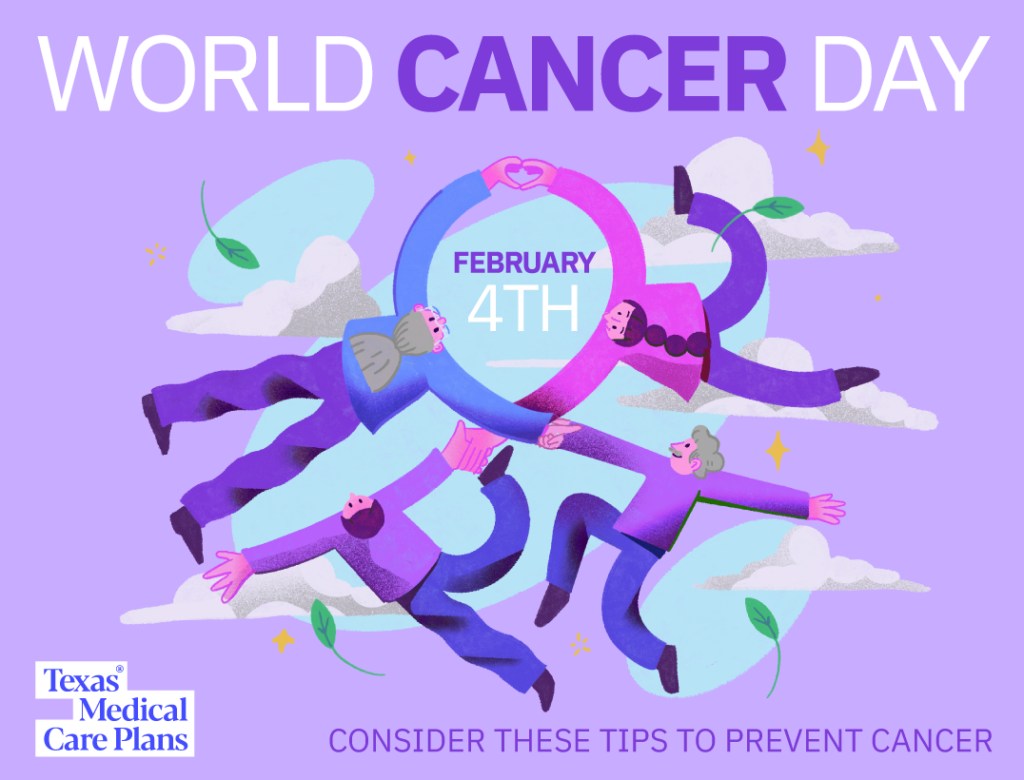February 4th is World Cancer Day. It’s a day that unites people, groups, and communities by a commitment to raising awareness and taking action. Created to help encourage the prevention, detection, and treatment of the disease, it’s an excellent occasion to open up conversations around the disease.
What is cancer?
The human body is made up of trillions and trillions of cells. These cells grow and multiply by cell division to form new cells as and when the body needs them. When cells grow old or get damaged, then they die and get replaced.
It’s a very normal and orderly process, but sometimes it can go wrong due to a number of factors. When that happens, abnormal or damaged cells can grow and multiply in the place of normal, healthy cells. That’s what cancer is; a disease that causes certain cells in the body to grow uncontrollably and spread to other parts of the body. It can start nearly anywhere.
These abnormal cells can multiply to become lumps of tissue called tumors, which can be malignant (dangerous, cancerous) or benign (generally harmless and uncancerous). In a process called metastasis, cancerous tumors can invade nearby tissues or even travel to parts of the body that aren’t nearby to form new tumors. Benign tumors don’t do this, and generally don’t grow back when removed (unlike cancerous tumors which sometimes do). However, benign tumors can grow quite large in size and as such can cause a number of serious symptoms.
Cancer is a genetic disease, meaning that it’s caused by changes to the genes that are in charge of cell function, especially cell growth and division.
Cancer can be caused by:
- Errors that happen when cells are dividing
- Damage to DNA that’s caused by the intake of harmful substances (such as chemicals in tobacco smoke or ultraviolet rays from the sun)
- Inheriting certain genes from parents
The body usually destroys cells with damaged or “incorrect” DNA before they even turn cancerous, but that ability can decrease with age, which is why the risk of cancer increases with age.
How to Prevent Cancer
There are many ways to lower your risk of getting cancer. Let’s talk a bit about them.
SCREENING TESTS
Screening tests check your body for cancer before symptoms are even displayed. Screening tests are best done regularly so that colorectal (colon), breast, and cervical cancers can be caught early as treatment tends to work best on them at that stage. Lung cancer screenings are also recommended for those who are high risk.
- Breast cancer screenings are usually mammograms, which are X-rays of the breasts. It’s also possible to use magnetic resonance imaging (MRI) alongside mammograms to check for breast cancer, which uses magnets and radio waves.
- Cervical cancer screenings are done with a pap smear (also called a pap test). These look for the presence of human papillomavirus (HPV) which causes cells to become abnormal and can eventually lead to cervical cancer. They look for precancers, not cancers.
- Colorectal (colon) cancer usually develops from abnormal growths in the colon or rectum. Screening can be done by stool tests, flexible sigmoidoscopies, and colonoscopies.
- Lung cancer can be screened with low-dose computed topography (also called low-dose CT scans or LDCTs).
VACCINES (SHOTS)
HPV can cause some cancers and it is a very common sexually transmitted infection. There is an HPV vaccine that protects those who take it against the types of HPV that usually cause these cancers. It’s recommended to be given to preteens around the age of 11, but it can be given at the age of 9. It’s generally not recommended for those over 26, but people should check with their doctor about the pros and cons.
There is also a Hepatitis B vaccine which protects against the liver disease of the same name that’s caused by the Hepatitis B virus, which can range in severity from a very mild illness to liver disease or even cancer.
HEALTHY CHOICES
There are lifestyle choices that can be made in order to decrease the risk of getting cancers, such as:
- Limiting alcohol intake
- Keeping at a healthy weight
- Protecting skin from UV rays from the sun (and tanning beds)
- Avoiding secondhand smoke
- Not smoking
Get insurance to help protect yourself against cancer
At Texas Medical Care Plans, we care about our clients and aim to educate them on how to take advantage of their insurance plans. Most insurance plans cover preventative measures for cancer such as screening tests, vaccines, and other benefits.
We invite you to take these preventative measures as we near World Cancer Day and share this information with those you love so that they can also do more for their health and check in with us for affordable health insurance.
We’re here to help you choose the plan that best suits your unique needs. Contact us for a free consultation today at (915) 781-1603.




Write A Comment